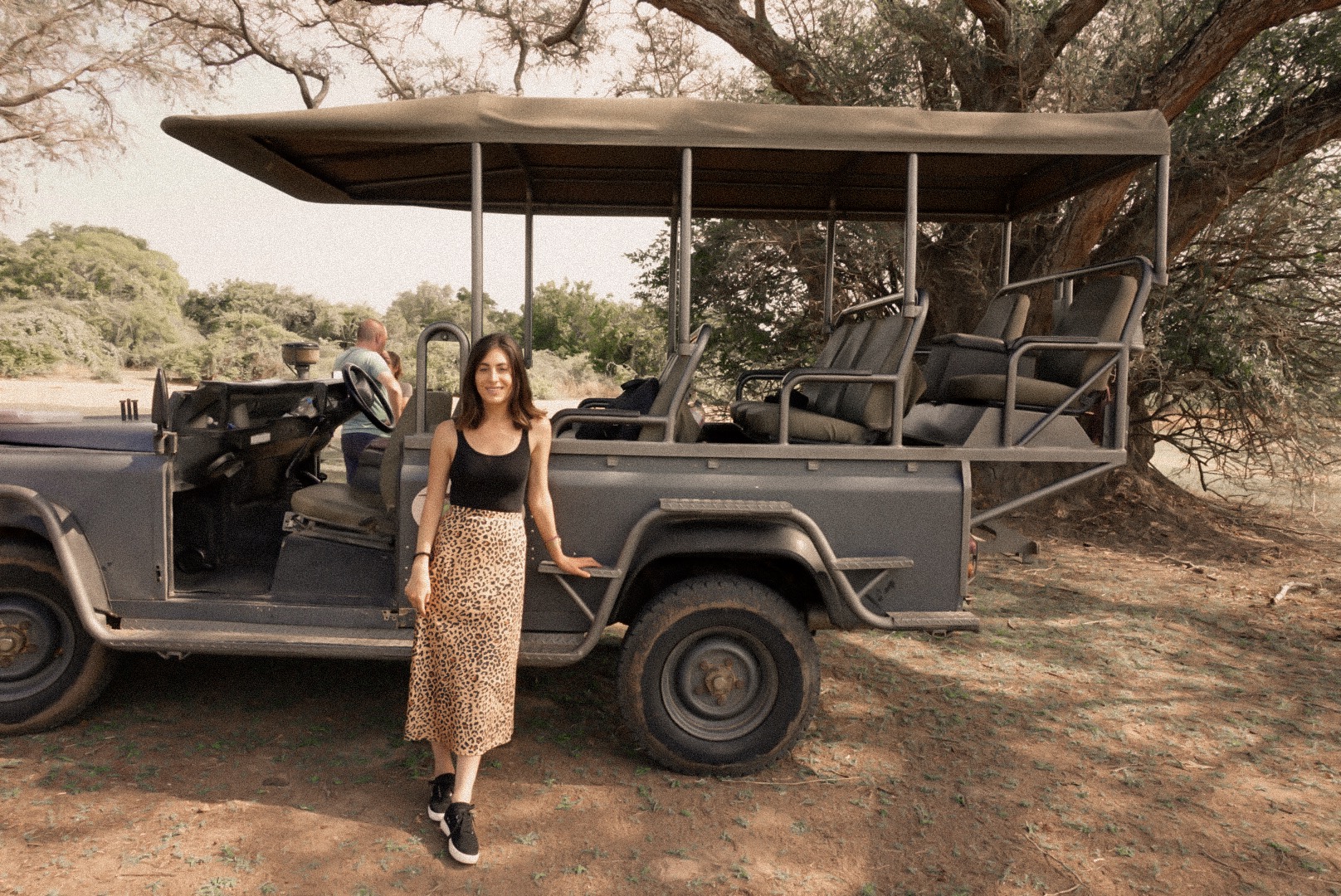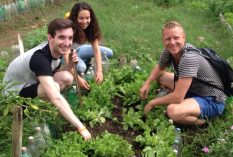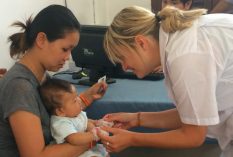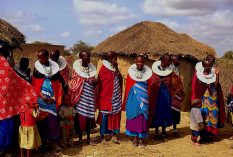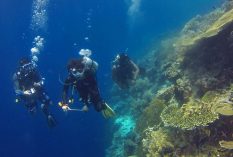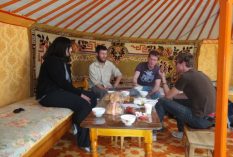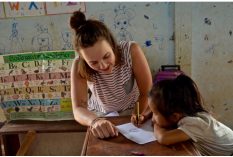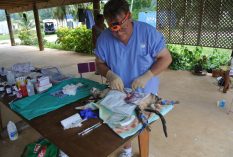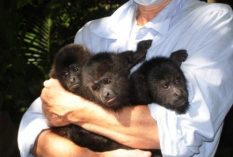“My time internting in Lilongwe has been one of the most incredible experiences of my legal career. As a final year law student, I was hoping to gain invaluable practical experience, challenge my legal skill-set and experience foreign law in action. This internship exceeded each and every expectation I had.
In my first week at LWT I spent a lot of time familiarising myself with the required legislation and cases, asking a lot of questions and gaining a much better appreciation for the organisation and what they do. The wildlife trust itself has an important role to play within the Malawian legal framework, and I was thrilled to be working so closely working alongside legal professionals and becoming involved with the court monitoring process. By the end of this first week, I felt far more knowledgeable about the practical impact that LWT on wildlife law in Malawi. I also was given legal research and other legal-centric jobs in the office, including the creation of a database for the court monitoring program data. This was an incredibly time-consuming task, however I enjoyed the challenge and appreciated that my abilities were being put to good use and was made to feel like a valuable member of the team. I left this task with not only new legal knowledge and a great deal of satisfaction, but valuable office skills that can be transferred easily into future work endeavours, such as higher proficiency in Microsoft Excell and Access. Interning in Lilongwe, particularly during my first week, was not without its day-to-day challenges. Simple luxuries of life that we take for granted, such as constant lights and power or even an insect-proof house, were confronting at first but soon became simply part of my day to day life. These simple inconveniences made me more appreciative of my own situation, as well as improving my personal patience and preparation in dealing with them. I’ve needed to ensure that I have retained copies of relevant legislative provisions, download all files where possible and kept an archive of reading material so I am able to continue working even when the internet or power is being temperamental.
My second week afforded me the opportunity to travel around the country, attending court and assisting Arthur (one of LWT’s permanent court monitors) in his duties in Nsanje, Mchinji and Mzuzu. This was such an exciting prospect for me as I had never dreamt of seeing so much of the country whilst working 8am-5pm and being on a tight budget. The physical court was a shock initially- open air, incredibly crowded and very hot in African summer. Despite this, I felt incredibly welcome in court proceedings despite obviously being a foreigner, was able to take notes on the court monitoring sheets and follow all proceedings. The cases were quite high-profile, dealing with primarily the possession and dealing of elephant ivory, endangered plants or other animal trophies. At times this was difficult to fully comprehend all details of the cases as the accused spoke primarily in Chichewa rather than English and these statements were generally not translated. The magistrate, clerks and prosecutors all spoke in English so it was important to be constantly attentive so as to not miss any important statements. Undertaking a court-based role was an important stepping-stone in developing greater professionalism in new contexts. Physically monitoring and recording case details allowed me to employ skills attained during my time at university while also challenging me to apply my knowledge of the local laws developed over the first week of my internship.
The travel time between cases was somewhat exhausting. Hours upon hours of driving through small towns and getting minimal sleep was tough, but gave me a great sense of admiration for Arthur, and other legal professionals, who undertake this type of lengthy travel 6 days a week to attend court whenever and wherever they are required. This week was been important in my professional development, giving me a clearer outlook on substantive law and procedure in a foreign country and a greater perception of legal life in Malawi.
My third week at LWT once again threw entirely new and unique duties at me, taught me new skills and kept me on my toes once more. My first role was to take all the date collected from court in the previous week and begin altering and adjusting the database to include this in there. It was satisfying to see how seamlessly this could be done, and hopefully will be something that will be of great help in the future. Beyond the microcosm of the law department, I’ve gained a much greater understanding of the role that legal professionals play within an NGO structure. As this is what I hope to do upon graduation, it’s been beneficial to see how legal work intersects with other spheres of the organization and understand the role lawyers’ play. Until my time at LWT I had not fully appreciated the benefit of legal skills in a cross-disciplinary workplace. Being in an office with a plethora of other professionals has not only allowed me to make some wonderful, diverse and interesting new friends, but has shown me the benefit of collaborating with those who have alternative skill sets. For example, when researching for a case regarding an olive baboon, a yellow baboon and a vervet monkey I was quite confused by their categorization. Categorization of species under the legislation is important as penalties differ greatly between game, protected, endangered and listed species. I was able to seek clarification and enhance my own understanding by seeking assistance from my colleague who is a primatologist. These types of interactions have helped me better understand the finer details of, and rationale behind, the law as well as showing me the value of collaborating with those with greater technical understandings of certain aspects of niche legislation.
My next role for the week was to assist with niche aspects of LWT’s upcoming report on behalf of the Department of National Parks and Wildlife assessing the changes and trends in wildlife crime cases. Firstly, myself and my fellow intern, Amelia began extracting data from the database to compare to the facts and figures from the previous reports and begin noting trends, patterns and areas of concern. This was a huge task in itself, and took up my whole week. It was sometimes frustrating dealing with bulk amounts of data but noticing important trends was satisfying. Upon this completion, Amelia began cross-comparing some data while I generated our present information into infographics and began preparing to present our findings to the volunteers and other professionals from the wider LWT community. It was incredibly satisfying to not only complete such a large project, but to feel recognised and valued in a team. It was great to know our work was being utilised and that our efforts were being appreciated.
My final week involved continuing on this research, refining our data and observations and creating more graphics useable for the LWT report. In addition to this, I was asked to assist with an array of tasks including writing a parliamentary speech and proof-reading commercial contracts. I am thankful to have been given this experience as these types of more important roles are rarely given to interns at home in Australia. My last task at LWT involved developing community information packages for mitigating human-animal conflict, with the purpose of informing local villagers in conflict-dense areas on their legal rights and responsibilities and who to contact. This was interesting for me as it was a bit more on the ‘fun’ side, allowed me to grow my own knowledge about some of the wildlife issues in Malawi and also understand some nuances of the law that had seemed slightly obscure to be in the past. My time in Lilongwe truly here flew by. I have forged some wonderful friendships and made real progression with my work, and was very sad to leave. I’m grateful to have had the opportunity to complete my internship at LWT and with such a diverse and committed team. My internship has exposed me to a variety of legal tasks performed by LWTs legal team. From court monitoring to revising cases to undertaking legal research- each task required a special set of skills and posed its own challenges. Upon reflection, this variation in roles has allowed me to realize where my strengths and weaknesses lie. I’ve verified my ability in, and confirmed my enjoyment of, legal research. I’ve tested my ability to interpret, understand and apply foreign legislation. I’ve sometimes struggled with understanding the inner workings of an unfamiliar, slightly dysfunctional court system. Additionally, the practical challenges I’ve faced in Lilongwe have given me a greater level of patience and highlighted the importance of resourcefulness and flexibility in a workplace. I cannot recommend this internship, or LWT, highly enough.”
Wildlife Justice Legal Internship in Malawi

